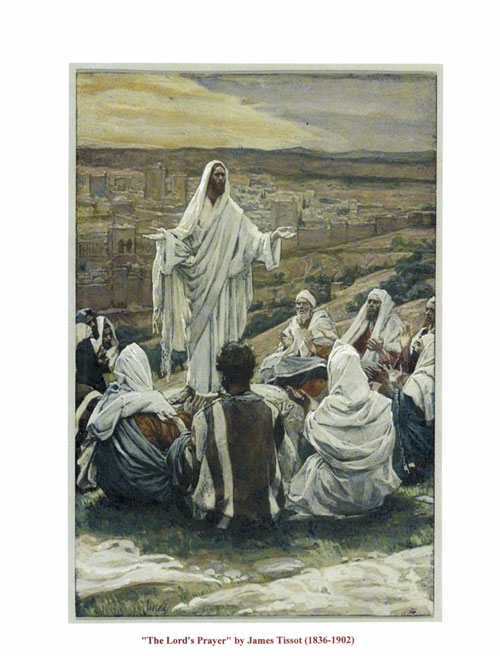
My dear brothers and sisters in the Lord,
There is no better meditation on the theology of fatherhood than the Lord’s Prayer. They are the words that Our Lord used to instruct His Apostles when they asked Him, “Teach us to pray.”
God is called “father” 14 times in the Old Testament and yet not by the word “Abba,” which was the word used by children to call their father – usually it was their first word. In fact, it is the word which Jesus used to instruct His Apostles in the Aramaic language which was the common parlance of the day. Jesus called God His Father, which was for many Jews a kind of blasphemy because who could call God his father except one who was generated by the Father. This is precisely why we can call God our father, because He is the Creator, the creator of each and every one of us.
In a certain sense, the word father is a metaphor for generator, the creator. It is important that we see that in God there is no human personality. But in order to make God understandable, Jesus allows us to call God our Father, as He called Him.
There is a wonderful scene in the film “Il Postino” in which the poet Pablo Neruda, in exile in Italy, speaks to his postman regarding the meaning of the word metaphor. Neruda kindly describes a metaphor as a means to describe one thing for another. This is precisely what Jesus did for us, He described God as His Father, so that we could come to some human understanding.
Yet, we hear in the Gospel of Matthew, 23:19, that we should call no man on Earth our father, there is only one Father in heaven. It is sometimes used by those against our faith to protest the title of father attributed to a priest. But this title is not exactly the word used by Jesus, when he called God His Father by using the word Abba. At that time, Abba was a special term that described a unique relationship between a father and a son describing child-like security. We see in St. Paul’s Epistle to the Romans 8:15 that it is through the spirit of sonship that we can cry Abba. Yes, we can call God our Father because we are all the children of God. Our Father is not the patriarchal father, not one who dominates a family. Rather, He is the Father of the Prodigal Son who goes out to meet the son who returns home seeking forgiveness. He forgives his son. In the wonderful painting by Rembrandt that describes this scene, we see in the background a woman, most probably the mother of the Prodigal Son. This shows that the patriarchal, demanding father is not the father that Jesus wants us to imagine.
Unfortunately, many people in our country today have a problem with fatherhood. As I have said many times before, we live in a time that has become known as “fatherless America.” More than half of our children live in fatherless homes. In a book entitled, “Fatherless American,” there was a sociological attempt to describe the situation of families in America living without fathers in many different ways. The book explores the outright abandonment or the absence of a father because of the responsibilities of work or other preoccupations that divert a father’s attention from his family.
We need to recapture the true understanding of fatherhood that Jesus taught us, so that when we pray the Our Father, the very prayer Jesus wants us to use to address our Father, we can embrace it fully understanding the wonderful gift of divine affiliation which we have with Him. The free gift of adoption by God requires that we make an effort to become worthy sons and daughters of God, our Father.
St. Teresa of Avila, in her teachings, reminds us that first we must have a desire to become like God in grace. Secondly, that we become His children in our prayer, lifting up our lives and hearts with great confidence in He who is described by Jesus as our Father.
For many today the concept of fatherhood is not only difficult to accept, but also a remote experience. As we come to celebrate Father’s Day, we recognize that we must put effort into understanding God as our Father. This is an effort of putting out into the deep mystery of God who is Father, Son and Holy Spirit. On this Father’s Day, let us remember our fathers and all those who have given us a good concept of fatherhood which enables us to truly address God as our Father.
